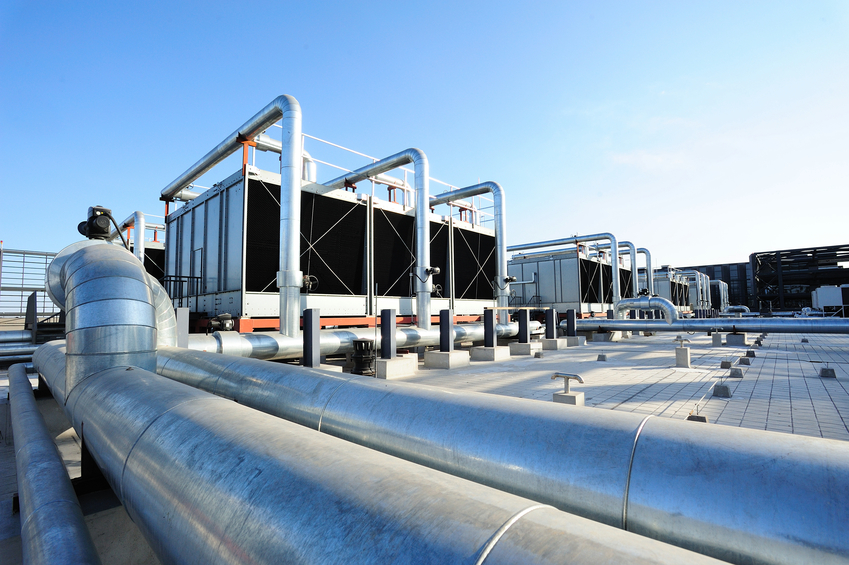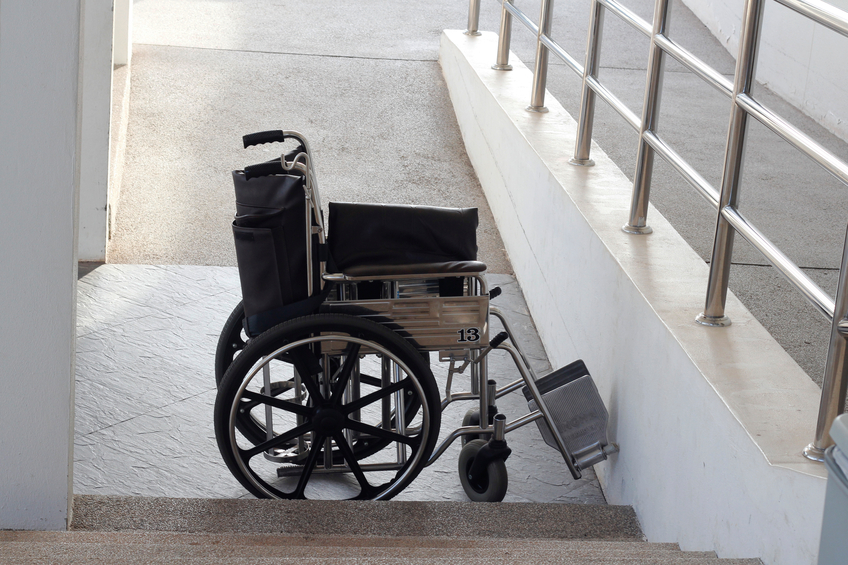Louisiana Mechanical, ADA and Ethics 15 PDH Discount Package 1
Courses in this Package
Thermodynamics (M08-001)
Heat Exchangers (M02-001)
Plumbing Guidelines for ADA Accessibility (M02-056)
Accessible Routes for ADA Accessibility (A02-012)
Engineering Ethics for Louisiana Professional Engineers (LA1-002)

This online engineering PDH course discusses the fundamentals of thermodynamics which is the study of the relationship between heat and mechanical work; it is a branch of both physics and engineering science. This course analyzes the effects of changes in temperature, pressure and volume on physical systems at a macroscopic scale. It also explains how energy balances can be performed on facility systems and how efficiency can be calculated.
This 8 PDH online course is applicable to mechanical and chemical engineers, facility operators, maintenance personnel, and other technical staff who are interested in understanding the fundamentals of thermodynamics.
This PE continuing education course is intended to provide you with the following specific knowledge and skills:
- Understanding thermodynamic properties
- Performing temperature and pressure measurements
- Learning the characteristics of energy, work, and heat
- Understanding thermodynamic systems and processes
- Understanding the change of phase
- Familiarizing with property diagrams and steam tables
- Knowing first and second law of thermodynamics
- Understanding compression processes
In this professional engineering CEU course, you need to review Volume 1 of the Department of Energy Publication DOE-HDBK-1012/1-92, "Thermodynamics" published by the Department of Energy.
Upon successful completion of the quiz, print your Certificate of Completion instantly. (Note: if you are paying by check or money order, you will be able to print it after we receive your payment.) For your convenience, we will also email it to you. Please note that you can log in to your account at any time to access and print your Certificate of Completion.

This online engineering PDH course describes the construction of plate heat exchangers as well as tube and shell heat exchangers. It also describes the flow patterns and temperature profiles in parallel flow, counter flow, and cross flow heat exchangers.
The transfer of thermal energy between fluids is one of the most important and frequently used processes in engineering. The transfer of heat is usually accomplished by means of a device known as a heat exchanger. Common applications of heat exchangers include boilers, fan coolers, cooling water heat exchangers, and condensers.
This 2 PDH online course is applicable to mechanical and chemical engineers, nuclear facility operators, maintenance personnel, and technical staff to fully understand the impact that their actions may have on the safe and reliable operation of facility components and systems.
This PE continuing education course is intended to provide you with the following specific knowledge and skills:
- Understanding the purpose of heat exchangers
- Learning the different types of heat exchangers
- Understanding heat exchanger applications
In this professional engineering CEU course, you need to review DOE-HDBK-1018/1-93, Volume 1, Module 2 of "Mechanical Science" published by the Department of Energy.
Upon successful completion of the quiz, print your Certificate of Completion instantly. (Note: if you are paying by check or money order, you will be able to print it after we receive your payment.) For your convenience, we will also email it to you. Please note that you can log in to your account at any time to access and print your Certificate of Completion.

This online engineering PDH course focuses on the plumbing elements and facilities of the 2010 ADA standards for accessible design.
The Department of Justice published revised regulations for Titles II and III of the Americans with Disabilities Act of 1990 "ADA" in the Federal Register on September 15, 2010. These regulations adopted revised, enforceable accessibility standards called the 2010 ADA Standards for Accessible Design "2010 Standards" or "Standards". The 2010 Standards set minimum requirements – both scoping and technical – for newly designed and constructed or altered State and local government facilities, public accommodations, and commercial facilities to be readily accessible to and usable by individuals with disabilities.
This 2 PDH online course is applicable to mechanical and civil engineers, architects, construction managers and others interested in learning more about plumbing guidelines for ADA accessibility.
This PE continuing education course is intended to provide you with the following specific knowledge and skills:
- Learning about the drinking fountain ADA requirements
- Learning about the coat hooks and shelves ADA requirements
- Learning about the water closet ADA requirements
- Learning about the urinal ADA requirements
- Learning about the shower stall ADA requirements
- Learning about the washing machine and dryers ADA requirements
- Learning about the saunas and steam rooms ADA requirements
In this professional engineering CEU course, you need to review “Plumbing Guidelines for ADA Accessibility”, which is based on Chapter 6 “Plumbing Elements and Facilities” of the 2010 ADA standards for accessible design.
Upon successful completion of the quiz, print your Certificate of Completion instantly. (Note: if you are paying by check or money order, you will be able to print it after we receive your payment.) For your convenience, we will also email it to you. Please note that you can log in to your account at any time to access and print your Certificate of Completion.

This online engineering PDH course focuses on the Accessible Routes of the 2010 ADA standards for accessible design.
The Department of Justice published revised regulations for Titles II and III of the Americans with Disabilities Act of 1990 "ADA" in the Federal Register on September 15, 2010. These regulations adopted revised, enforceable accessibility standards called the 2010 ADA Standards for Accessible Design "2010 Standards" or "Standards". The 2010 Standards set minimum requirements – both scoping and technical – for newly designed and constructed or altered State and local government facilities, public accommodations, and commercial facilities to be readily accessible to and usable by individuals with disabilities.
This 2 PDH online course is applicable to all engineers, architects, construction managers and others interested in learning more about accessible routes for ADA accessibility.
This PE continuing education course is intended to provide you with the following specific knowledge and skills:
- Learning about the ADA requirements of accessible routes for walking surfaces
- Learning about the ADA requirements of accessible routes for doors, doorways and gates
- Learning about the ADA requirements of accessible routes for ramps and curb ramps
- Learning about the ADA requirements of accessible routes for elevators and elevator car
- Learning about the ADA requirements of accessible routes for platform lifts
Upon successful completion of the quiz, print your Certificate of Completion instantly. (Note: if you are paying by check or money order, you will be able to print it after we receive your payment.) For your convenience, we will also email it to you. Please note that you can log in to your account at any time to access and print your Certificate of Completion.

This online engineering PDH course presents the laws and rules of ethics and professional responsibility governing the practice of engineering in the State of Louisiana. Excerpts from Title 37, Chapter 8 of the Louisiana Revised Statutes and Title 46, Part LXI of the Louisiana Administrative Code, which relate to the laws and rules of professional conduct are presented in this course.
Engineering ethics is (1) the study of moral issues and decisions confronting individuals and organizations involved in engineering and (2) the study of related questions about moral conduct, character, ideals and relationships of peoples and organizations involved in technological development (Martin and Schinzinger, Ethics in Engineering).
Since engineers are faced with frequent moral and ethical dilemmas while practicing their engineering profession, this course will provide you with moral and ethical guidance in your decision making process. Most importantly, it will provide you with insight on how to conduct, respect and protect your engineering practice with the utmost professionalism.
This 1 PDH online course is applicable to Professional Engineers licensed in the State of Louisiana and who are required to demonstrate continuing professional competency in engineering ethics as a condition of their license renewal. For each renewal period, every licensee must complete fifteen (15) professional development hours, at least one (1) of which must be relative to professional responsibility, conduct and ethics.
This PE continuing education engineering course is intended to provide you with the following specific knowledge and skills:
- Familiarizing with the laws and rules regulating the practice of engineering in the State of Louisiana
- Understanding the roles of the Louisiana Board and its disciplinary authority
- Understanding the Louisiana Board disciplinary process
- Learning about engineering ethics and the laws and rules of professional conduct and responsibility
- Reviewing ethical and disciplinary case studies and their corresponding penalties
Upon successful completion of the quiz, print your Certificate of Completion instantly. (Note: if you are paying by check or money order, you will be able to print it after we receive your payment.) For your convenience, we will also email it to you. Please note that you can log in to your account at any time to access and print your Certificate of Completion.